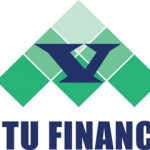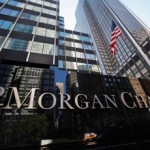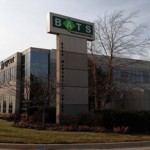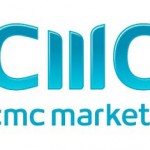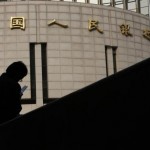Virtu IPO Tests Perceptions of High-Speed Trading
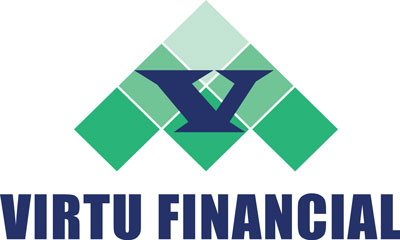
High-frequency trading firm prices shares at $19, high end of projected range
When Virtu Financial Inc., starts trading Thursday, its performance will be a test of how markets view a firm that has been at the center of controversy around high-speed, computerized trading.
On Wednesday, investors gave the firm’s initial public offering a vote of confidence. Virtu priced its shares at $19 each, according to Douglas Cifu, chief executive officer. That was at the top end of the $17 to $19 a share targeted by the company, a sign of strong demand.
At that price, Virtu—one of the world’s largest high-frequency-trading firms and the first one to go public—raised more than $300 million. Most of the proceeds will go to repaying existing investors, including executives and the private-equity firm Silver Lake Partners. Virtu will start trading on the Nasdaq Stock Market with a valuation of $2.6 billion and be priced at a large discount to the S&P 500 index.
The company makes markets—meaning it offers to buy and sell securities in the hope of capturing a tiny spread between those prices—for securities traded on more than 200 exchanges and other private venues around the world.
Mr. Cifu said in an interview that the offering was a sign that it was “the right time for a market leader to tell the story of how it has brought efficiency to the markets.”
Virtu’s reliance on ultrafast telecommunications networks and computer algorithms to do its trading has sparked criticism in the past year from some market participants and observers who believe firms such as Virtu have an unfair advantage over everyday investors. At the forefront of that criticism was writer Michael Lewis, who in his best-selling book “Flash Boys” argued the market was rigged in favor of exchanges, big banks and high-frequency traders. Virtu wasn’t mentioned in the book.
These firms’ role in trading of currencies and bonds is on the rise and expected to increase.
“The machines have won,” said Tim Quast, managing director of Modern IR LLC, a Denver company that advises companies on market-structure issues. Virtu applies “roboticslike technology to market making,” he said.
The company has been consistently profitable since early 2008, according to Virtu’s latest filing with the Securities and Exchange Commission. Net income totaled $190.1 million on revenue of $723.1 million in 2014, compared with net income of $182.2 million on $664.5 million of revenue in 2013, the filing shows.
The company sold 16.5 million shares in the offering, raising $313.5 million. The offering was more than 10 times oversubscribed.
Virtu aims to pay a regular dividend, according to the prospectus. It said it expects the first dividend to public investors will be 24 cents a share, which would be a 5.1% yield at the IPO price on a yearly basis. The S&P 500 index broadly yields less than 2%, according to FactSet. Dividend yield is the amount per share a company pays out annually relative to its stock price.
Virtu’s IPO will be the first for a pure high-frequency trading firm and symbolizes how lean, technology-focused companies can have an outsize impact on global trading, said Juan Pablo Pardo-Guerra, a professor of sociology at the London School of Economics who studies the automation of financial markets.
“These firms manage to move trillions of dollars’ worth of securities with a few hundred people,” he said. “Traditional banks need thousands of people to move similar volumes.”
One challenge for investors will be valuing Virtu. Pricing at $19 a share, Virtu carries a market value of $2.6 billion. This, in turn, would put the company on a multiple of trailing earnings of about 13.6 times, a 24% discount to the S&P 500 index, according to data from FactSet.
Virtu relies heavily on technology and a culture that encourages its math-minded employees to continuously hone trading algorithms, company executives say.
“They have a lot of intellectual property, but it’s not defendable with a patent,” saidMichael Richter, a private investor who formerly served as chief financial officer of Virtu competitor Tower Research LLC. “A key part of their business is the culture, which is very hard to assess.”
Despite the controversy around high-frequency trading, Virtu’s reputation is bolstered in part by its association with IEX Group Inc. The founding of IEX, an alternative-trading venue that uses technology to slow down high-speed traders, played a central role in “Flash Boys.” Virtu was one of IEX’s first market makers, and IEX CEO Brad Katsuyamahas referred to Virtu as one of the “good” high-frequency trading firms.
“We’ve been successful in large measure because we haven’t been distracted by other businesses,” Virtu’s Mr. Cifu said. “We focus on one thing and one thing only: making the tightest bid and offer on more than 11,000 financial instruments around the world.”
Virtu also has attracted an important global investor. Last year, Singapore’s state investment firm, Temasek Holdings Pte. Ltd., bought a stake of about 10% for $200 million. Temasek isn’t selling in the IPO.
Boon Sim, a Temasek executive, said at the time that Virtu had proved it had a “deep comparative advantage versus more traditional players” and it was primed to make major inroads into Asian markets.
Virtu will trade with the ticker symbol VIRT.
Source: WSJ – Virtu IPO Tests Perceptions of High-Speed Trading









